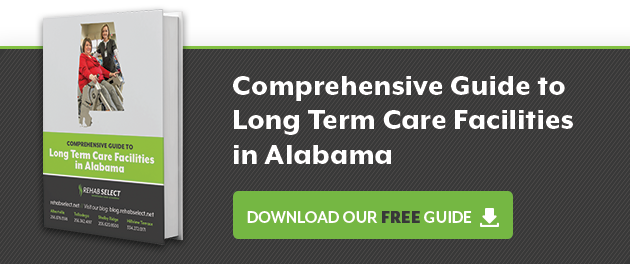 Skilled nursing facilities specialize in caring for individuals who need assistance on a temporary basis as the recovery and rehabilitate after a serious illness or medical event, or people who need long term care due to chronic illness or disabilities. If you or a loved one are in need of this type of care, you'll find that there are many such facilities available to provide that care.
Skilled nursing facilities specialize in caring for individuals who need assistance on a temporary basis as the recovery and rehabilitate after a serious illness or medical event, or people who need long term care due to chronic illness or disabilities. If you or a loved one are in need of this type of care, you'll find that there are many such facilities available to provide that care.
While having lots of options is an advantage for many reasons, it can also make the task of choosing the best one for your needs a bit more difficult. Here we'll lay out a basic road map of how to compare skilled nursing facilities effectively to ease your path to a solid, well-informed decision about your care.
Rule out facilities that cannot meet your needs
Your first step in comparing the skilled nursing facilities in your area is to scratch any off of your list that cannot meet your care needs. A needs assessment, coordinated through your primary care doctor or, if you are hospitalized, your discharge planner or hospital social worker, can help if you aren't sure exactly what those needs are. Then, call each facility on your list and inquire as to whether or not they offer the proper range of services to accommodate those needs. This initial call is also a good opportunity to rule out any that do not accept your insurance, and if you are using Medicare or Medicaid, any that are not certified by these agencies as participating providers.
Research and compare quality
Once you have narrowed your list to just those facilities that can meet your care and insurance needs, quality comparison is the next step. Medicare offers a very good website that enables easy, efficient comparisons of a number of important factors that reflect on the quality of care you can expect to receive in specific facilities. The site provides ratings on quality measures, staffing and health and safety inspections, along with reports that detail the facts and figures underlying those ratings.
Your local Long-Term Care Ombudsman program is another very good resource for solid information on the quality of skilled nursing facilities. Information they can offer to help you with your quality comparisons include any complaints against specific facilities filed by residents, families and staff, whether or not complaints were addressed and if so, what measures were taken to in resolving them. They can also provide information on inspection and survey reports for specific facilities, including any deficiencies, citations, fines or penalties a facility has received, and any corrective measures taken to resolve cited issues.
Research costs
Cost is the next point of comparison you'll need to look into, and there are some important points to keep in mind as you do. Typically, there is a base rate, which is the cost per day for a specified range of care and services, as well as fee-based services that are offered at extra cost. Asking for a breakdown of which of the services you will use are covered by the basic rate and which will cost extra from each facility is very important to making accurate cost comparisons, since these details differ greatly from one skilled nursing facility to another.
Make an in-person evaluation
Your final step in comparing your options is to visit the skilled nursing facilities you're considering. Make an appointment to tour each one and get an inside view of their operations. Medicare offers a printable checklist that spells out exactly what you should look for and ask as you take these tours to ensure you're equipped to evaluate facilities effectively.





